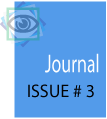International Journal of Small Economies
an International peer-reviewed academic journal on public policy in small economies and nations, island nations and developing countries
Search
Categories
A AZIZ KHAN
Vol. 03, No. 01, Year 2012, Pages 11-22
Abstract
Bangladesh began her transition to democracy in 1990 through a process of large-scale uprisings when political parties united to fight President Ershad’s ten-year authoritarian rule. Since 1991 elections in Bangladesh have been held every five years (except between 2007-2008 during a two year state of emergency declared by the army-backed Neutral Caretaker Government), with an alternation of power each time, thereby meeting Huntington’s two-turnover test and reaching Rustow’s decision phase of democracy . Bangladesh is a homogenous country with very few cleavages in terms of ethnicity, religion or caste. People have historically manifested strong democratic spirit and yet the country remains suspended in what Fareed Zakaria terms ‘illiberal democracy’ and oftentimes illustrates that liberal values of tolerance and pluralism represent distinct political traditions that may not accompany electoral democracy . The democratic era in Bangladesh has been marred by a widespread consensus of a ‘governance crisis’, characterized by rampant corruption amongst politicians and public officials, including the judiciary and law enforcement agencies; escalating political violence and the use of ‘muscle politics’ through mastaans (political strongmen); marginal rule of law with access to justice being impaired by corruption and politicization of state agencies; regular disruptions to daily life through hartals (political strikes), curfews, and aggressive politics of the street; and the ensuing lack of civil rights, basic security and redress mechanisms from these jointly reinforcing illiberal phenomena. These elements are suggestive of deep-seated problems in Bangladesh’s style of democracy, and have produced social tensions, a lack of equal access to natural justice, and abuses of human rights and shows that Bangladesh has not reached the habituation phase of democracy despite holding regular elections. In this paper I attempt to illustrate that after twenty years of democratic rule and elections Bangladesh remains an ‘Illiberal Democracy’ because of institutional dualism in the form of patron-client networks. The paper shows that formal institutions such as the electoral system are rendered ineffective because of the culture of patronage and its effect on voter and politician behavior.
The paper is divided into four parts, each with several sub-sections. Part II defines different types of democracies and describes Bangladesh as a ‘patronage democracy’. Section c of Part II explains what democratic consolidation is for the purpose of this paper. Part III explores the concept of informal institutions and their impact on formal democratic institutions and then moves on to a specific discussion of the particular informal institution of ‘patron-clientelism’. Finally, Part IV explores how patron-client networks manifest in the electoral arena in Bangladesh and what this manifestation means for accountability of Members of Parliament. The paper concludes that patron-client networks in Bangladesh change the nature of accountability in such a manner that politicians in such a patronage democracy are held accountable on the basis of individualized distribution of private resources and thus the nature of democracy in these societies is different from what is known as ‘liberal democracy’. For the purpose of this research I will use the terms ‘patron-client’, ‘clientelism’ and ‘patronage’ interchangeably and as defined below.
This paper is the result of extensive desk review of academic literature, policy papers and practice-orientated research. Primary empirical research has been conducted in the form of semi-structured elite interviews. I have interviewed elected representatives of the Bangladesh Parliament (Jatiyo Sangsad) in order to identify the role of MPs in Bangladesh and to evaluate to what extent they view themselves as patrons and act according to patron-client modes as opposed to formal duties of MPs and why – the why should help me understand more about the nature of accountability in the electoral arena in Bangladesh. Additionally, secondary empirical research through the examination of media reports has also been conducted.
Download the paper (PDF):
Institutional Dualism and its Impact on Elections: The Case of Patron-Client Networks in Bangladesh
A AZIZ KHAN
Vol. 03, No. 01, Year 2012, Pages 11-22
Trackbacks
There are no trackbacks on this entry.


Comments
There are no comments on this entry.